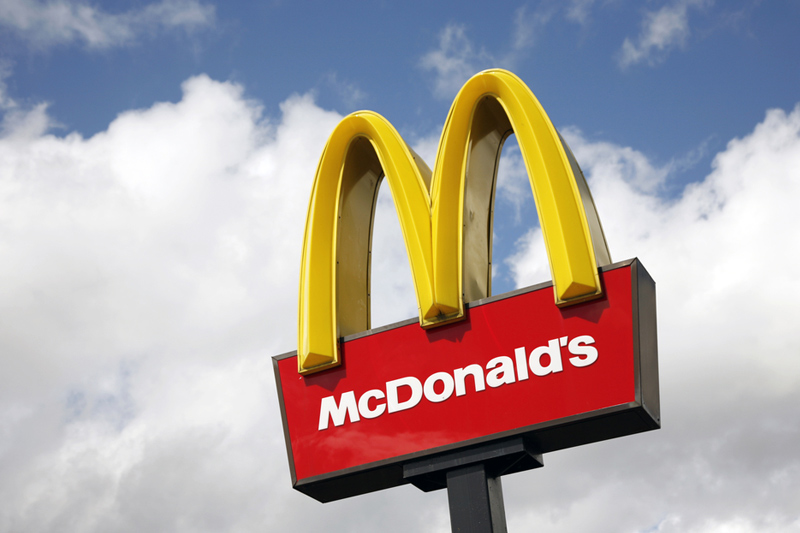By Connor Adams Sheets - As the scope of China’s latest food scandal broadens amid Tuesday reports that Starbucks, Burger King, Papa John’s and IKEA all bought meat from a poultry firm shut down Sunday over food safety violations, experts say the implicated companies need to take meaningful steps to strengthen their food safety policies.
“Companies seem to be willing to make the investment to do due diligence for things like corruption and bribery because they have major legal consequences, but tainted food products can do enormous damage to reputations around the world as well,” Alexandra Wrage, president of Maryland-based nonprofit Trace International, which helps its members enact due diligence and compliance programs, said.
“There has to be the investment to get this right ... In a place like China where you aren’t confident in your supply chain, companies need to realize that the responsibility is going to shift to them to monitor their supply chain ensure that it is safe and reputable and reliable.”
McDonald's (NYSE:MCD) and Yum! Brands Inc (NYSE:YUM) apologized to consumers Sunday as a result of the expanding scandal, which emerged in the wake of a report in Chinese media about Shanghai Husi Food Co Ltd. A subsidiary of the U.S.-based, privately held OSI Group LLC, the supplier was shuttered by Chinese regulators on Sunday after a TV investigation showed footage of employees using meat dropped on the floor and expired chicken.
The fallout for McDonald’s and Yum -- the parent company of the KFC and Pizza Hut restaurant chains -- has been swift, with their stocks falling by 1.45 percent and 4.25 percent respectively on Monday, underscoring the need for them to address their supply chain failings.
And Reuters reported Tuesday morning that other companies including Starbucks Corporation (NASDAQ:SBUX), Burger King Worldwide Inc (NYSE:BKW), Papa John's International Inc (NASDAQ:PZZA) and the privately held The IKEA Group have come forward to reveal that they too have sold products containing meat supplied by Shanghai Husi. McDonald’s told the newswire that it had determined that it sold meat from the supplier in stores in Japan and Thailand.
The companies are left facing the twin uphill battles of restoring confidence in their brands and putting in place measures to ensure that they avoid future problems in China, which has been plagued by repeated food safety scandals in recent years. The latest allegations came as Yum -- which earns more than half its revenue from its Chinese locations -- finally seemed to be recovering from a late 2012 scandal over a report that revealed it had been using chicken from two Chinese suppliers that were overusing growth hormones.
The first thing the implicated companies need to do in order to recover from this current scandal is to launch a public relations campaign aimed at reassuring consumers, according to Candice Lee, a franchising attorney at the California law firm Palmieri Tyler.
“They need to show that they’re looking for a replacement supplier or they’re using a supplier from another country or are investigating the supplier, to make sure that they are going through the due diligence of ensuring that they find a supplier that will be up to their standards going forward,” Lee said. “Something to put the consumers’ minds at ease that they’re not going to use the tainted product and to ensure that this is not going to happen again.”

That process has already begun in earnest, as McDonald’s and Yum have released statements apologizing to their customers and announcing they have severed ties with Shanghai Husi.
"If confirmed, the practices outlined in the report are completely unacceptable to McDonald’s. We are no longer serving product from the factory. This matter is being thoroughly investigated and we are cooperating fully with the authorities,” McDonald’s spokeswoman Becca Harry said via email.
Yum provided via email a lengthy Yum China statement translated from Chinese:
“We already required all KFC and Pizza Hut restaurants to seal up and stop using all meat materials supplied to us from the Husi factory … Food safety is the most important priority for us. We will not tolerate any violations of government laws and regulations from our suppliers. Yum! China has immediately started the investigation on Husi, and will collaborate with government proactively.”
But simply apologizing and dropping Shanghai Husi will not be enough to restore confidence in their brands, observers say. Tony Corbo, lead lobbyist at the U.S.-based advocacy organization Food & Water Watch, agreed that it is important for companies to take this process into their own hands. Despite the fact that China has made improving food safety a national priority, he said, the implementation has yet to catch up with the rhetoric.
“These companies need to be careful as far as who they’re sourcing their meat and poultry from. That’s common sense,” he said. “If they’re not doing this, they’re kind of stupid, but they should be going to these plants on a regular basis -- these plants that are supplying ingredients and meat supply -- to ensure safety standards are being met.”
Hank Lambert, CEO of Pure Bioscience (OTC:PURE), a California company that produces antimicrobial products for use in food safety and other applications, emphasized the importance of companies enacting their own inspection systems and safety standards to augment those of Chinese regulators.
“One thing they might want to do is tighten up the product specifications and specifications by which a company would become a supplier to them to include more frequent audits at their suppliers’ plants, both announced and unannounced,” he said.
“Their size and the size of the network of suppliers increases the complexity of the challenge to ensure that their suppliers are adhering to food safety standards. It’s basically a resource commitment on their part: increase the number of auditors and inspectors that they have going into the plants,” Lambert said.
